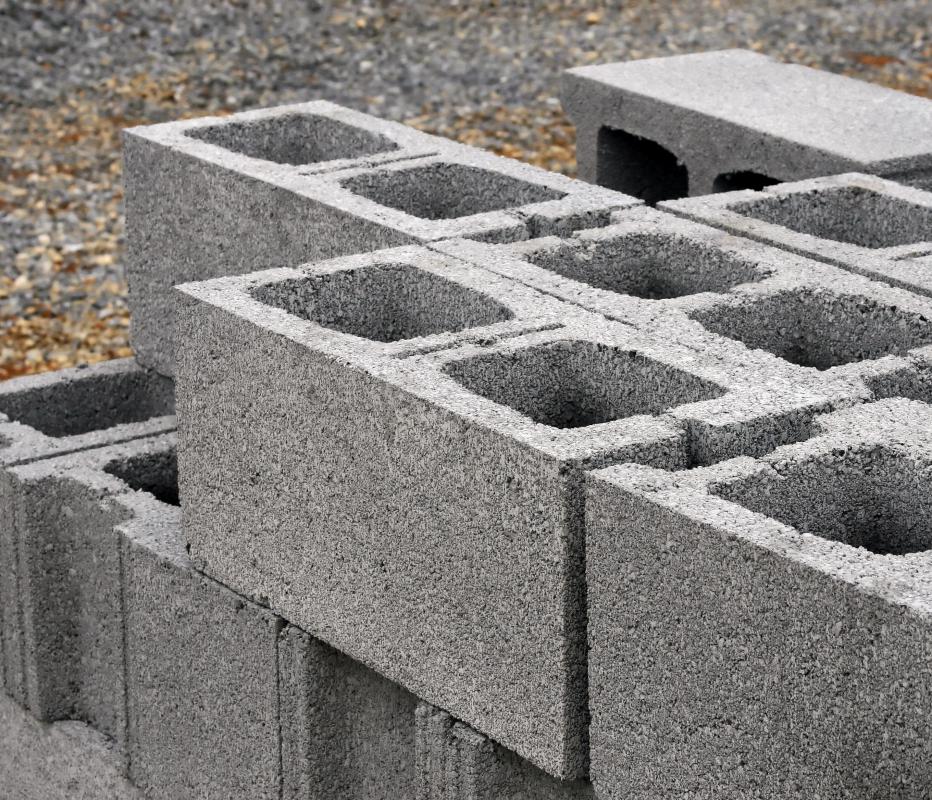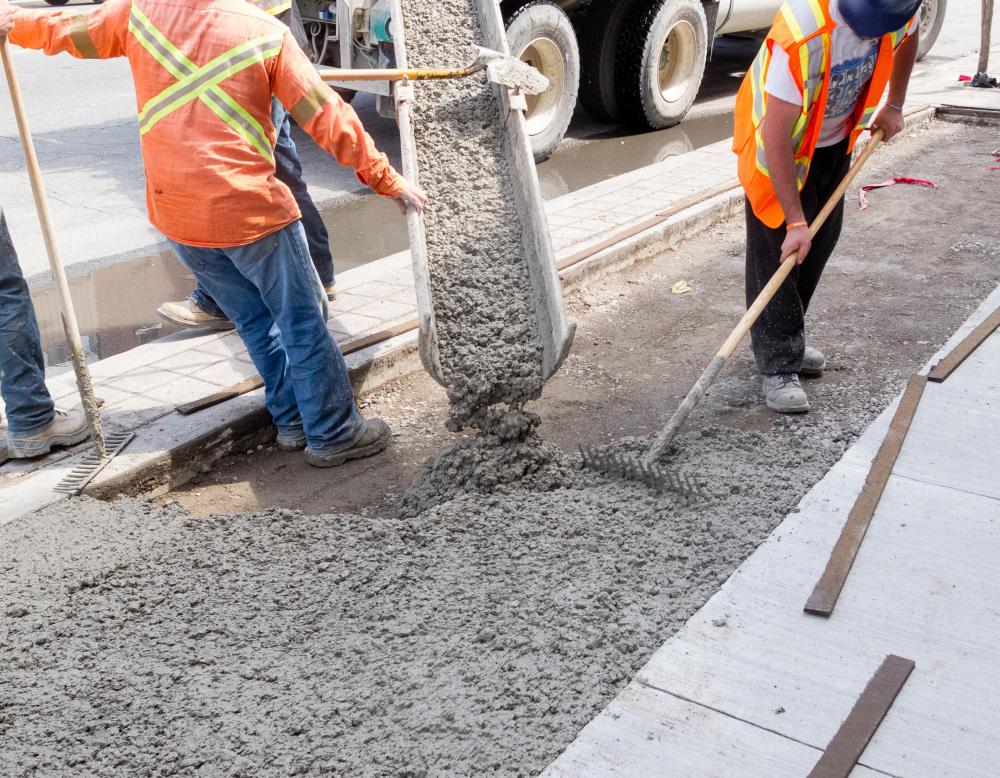At WiseGEEK, we're committed to delivering accurate, trustworthy information. Our expert-authored content is rigorously fact-checked and sourced from credible authorities. Discover how we uphold the highest standards in providing you with reliable knowledge.
How do I Become a Concrete Mason?
Concrete masons, also known as cement masons or concrete finishers, work in the construction industry. Their primary function is to mix, pour, set and finish concrete or concrete blocks. To become a concrete mason, one must either work as an apprentice to acquire concrete skills through on the job training, or attend a vocational education program to learn the skills through a trade or technical school. On the job training programs may be casual or they may be a formal apprenticeship program supported by a union, trade organization, or contracting company. Technical and trade schools may also be attended after learning skills on the job if one wishes to seek management positions.
Those choosing the on the job training route to become a concrete mason will usually begin with basic construction labor jobs. After learning more about the tools, machinery, and materials used in the cement business, helpers will move on to assisting experienced concrete masons with more advanced tasks. Beginning solo tasks may include edging or jointing newly laid concrete. When those basics are mastered, masons will move on to higher skilled tasks such as finishing. Formal apprenticeship programs for individuals who wish to become a concrete mason will involve both on the job training as well as time spent in a classroom.

Apprenticeship programs and vocational education programs require about 144 hours of classroom training in addition to on the job work. Classes will likely include math, blueprints, layout work, cost estimates, and safety. The average length of time to complete a formal training program is approximately three years. Those with a natural ability and skills may become concrete masons much sooner, however. Progress is based on skill mastery. Many apprentice programs will require completion of an education program first, with a passing grade on both written and practical exams.

Other requirements to become a concrete mason are good physical condition, dependability, and the ability to work well on teams. The construction industry requires much interaction with other workers, so good communication is a must. Most beginning concrete masons will be at least 18 years of age and have completed high school. For those interested in advancement, additional courses will help masons to become concrete supervisors, construction managers, and cost estimators. Though certification is not required, it is a good way to confirm achievement of high level skills in concrete masonry.
AS FEATURED ON:
AS FEATURED ON:














Discussion Comments
I wanted to know how I can fix a patch falling from the ceiling, but your article was helpful.
Post your comments